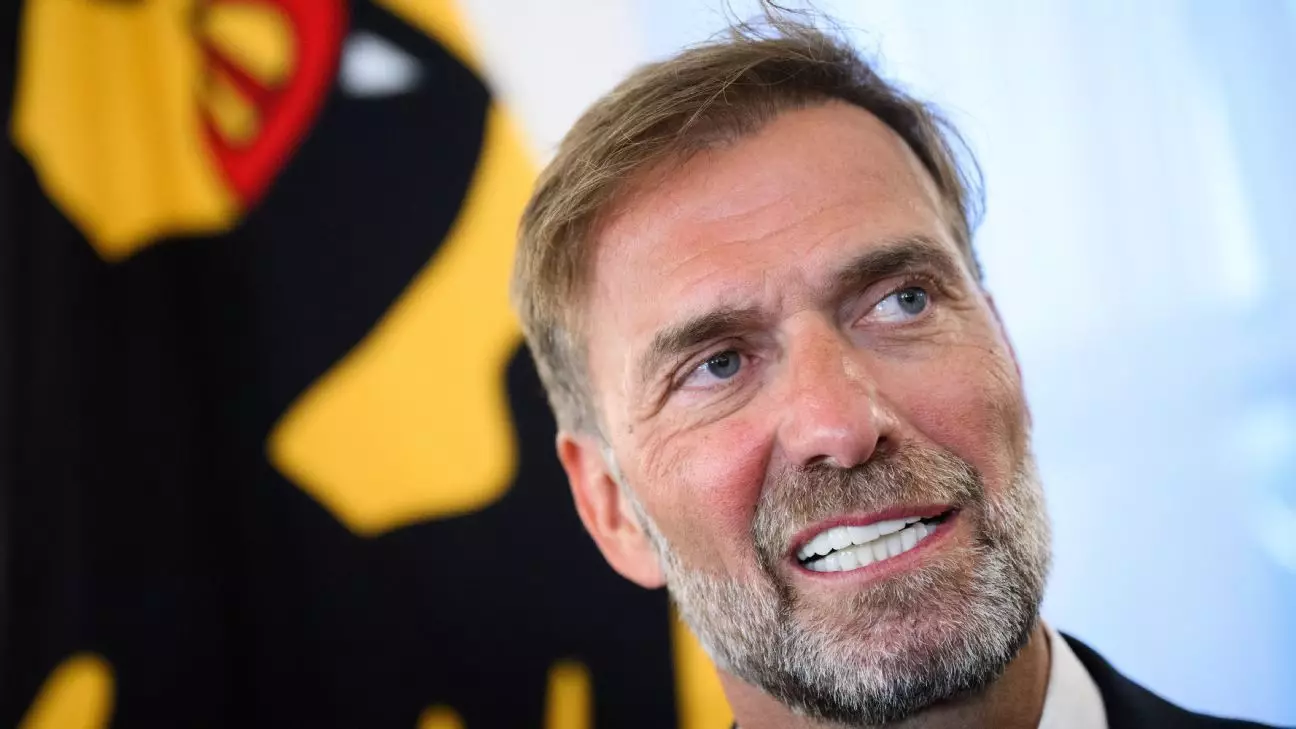In a decision that sent ripples through the football world, Jürgen Klopp has opted to take on a new role at Red Bull, stepping into the position of head of global football for the convivial beverage giant starting in January. The announcement was met with a blend of astonishment and disillusionment, particularly among supporters of Klopp’s former clubs in Germany. This transition marks a significant shift for a manager who has often been lauded for his deep-seated emotional connections to his past teams, including Mainz and Borussia Dortmund. As Klopp prepares to venture into this corporate domain, it’s essential to understand both the implications of his decision and the responses it has elicited.
Klopp’s remarks reflect a desire for neutrality in his new venture, emphasizing a reluctance to “step on anybody’s toes.” His assertion underscores the tightrope he must walk as he aligns himself with a brand that has garnered considerable disdain from various fan bases. Red Bull, particularly through its involvement with RB Leipzig, has been criticized for its perceived commercialization of football. Many purists view the club as a representation of corporate interests encroaching upon the traditions of the sport. Supporters from Klopp’s previous clubs, who have cherished his impact and legacy, now find themselves grappling with an uncomfortable reality—seeing their beloved manager associating with an organization that many consider disruptive.
The backlash has been particularly vocal among fans of Borussia Dortmund, a club Klopp led to two Bundesliga titles and a Champions League final during his tumultuous and storied tenure. Additionally, Mainz supporters have displayed banners questioning Klopp’s judgment, highlighting the emotional disconnect that can occur when a beloved figure takes a path perceived as contrary to the values of loyalty and tradition that are supposed to define football.
What is striking about Klopp’s approach is his nuanced view of Red Bull’s influence in football. He argues that he has never critiqued the involvement of the brand in the sport too harshly, suggesting that it has played a pivotal role in revitalizing football in Eastern Germany, especially with the establishment of RB Leipzig. It’s a complex argument, as Klopp seems to be trying to reconcile his professional aspirations with the lingering resentment felt by many fans. He recognizes the paradox—that any decision he makes will likely disappoint a segment of fans, a reminder that striving for success often comes with sacrifices, particularly concerning the emotional ties built over years.
Moreover, Klopp’s admission that he had previously considered taking a “long break” after his tenure at Liverpool adds another layer to his narrative. At 57, the seasoned coach is still brimming with ambition and energy, but choosing Red Bull underscores a divergence from traditional management roles in favor of a broader advisory position—the intent not to dominate but to collaborate. His belief that coaches are often the “loneliest person at the club” is telling. It suggests he understands the pressures that come with the job and perhaps aims to cultivate a supportive environment where various clubs under the Red Bull umbrella can share insights and strategies.
As Klopp looks forward to this new chapter, he must navigate the inherent challenges that come with it. The juxtaposition of his historical commitment to community-oriented football against his new corporate role raises questions about identity and integrity in sport. Fans are right to feel ambivalent; the complexities of loyalty, success, and corporate partnerships in modern football have never been more pronounced.
While Klopp’s move to head up Red Bull’s football enterprise is undoubtedly ambitious, it opens up broader discussions about the future of football in an increasingly commercialized landscape. Klopp’s intent to position himself as an adviser rather than a traditional manager might mitigate some concerns, but it won’t erase the underlying tension between corporate involvement and the grassroots essence that many football fans cherish. As he embarks on this journey, the football community will undoubtedly watch closely, eager to see if Klopp can balance his dual roles and maintain the heart of the game that he himself has celebrated throughout his illustrious career.


Leave a Reply